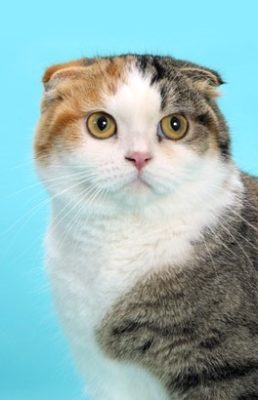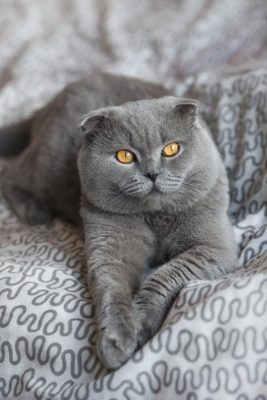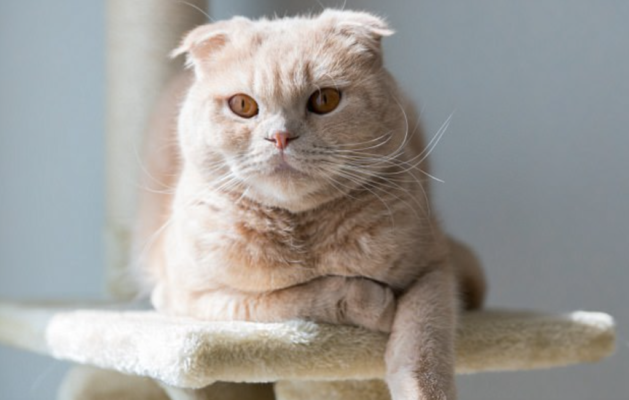Scottish Fold
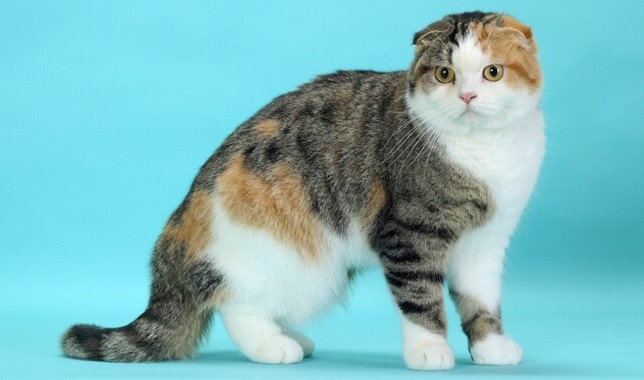
Scottish Folds are intelligent, calm, and quiet cats. They adapt easily to new environments, people, and situations. At the same time, Scottish Folds are very loyal and tend to bond with one person in the family. Although they also allow other members to cuddle and pet themselves. Despite their loyalty, these cats are not intrusive.
Table of Contents
Breed Information
| Origin | Scotland |
| Size | Males 25-30 cm Females 23-27 cm |
| Weight | Males 4-7 kg Females 3-5 kg |
| Fur Type | Short-haired |
| Color | White, blue, cream, silver, black and brown |
| Lifestyle | Indoors |
| Lifespan | 10-15 years |
| FIFe Classification | – |
| WCF Classification | Group 3: “Short-haired” Breed designation – SFS |
| TICA Classification | SF |
| Group | Short-haired cats, popular cats, apartment cats (docile cats) |
| Price | $1000-1500 |
Breed Photos
Origin History
The Scottish Fold cat pedigree dates back to Susie, a cat found on a Scottish farm. Her exact origins are unknown, but what is important is that this kitten had unusual folded ears. This cat was later spotted by breeders who had previously been breeding short-haired British cats. They bought her off the farm and crossed her with a short-haired Brit. In 1963, Susie had her first kittens, which also had flared ears. The breed got its name after its unusual ears and the country in which Susie, the breed’s mother, was found. The second name of this breed is Scottish Fold.
Many breeders and cat lovers were excited about this new breed, but at first, the breed was never officially recognized due to genetic health problems. After some time, the Scottish Fold was accepted for registration by the Cat Fanciers’ Association. It happened in the 1970s.
Appearance
Scottish Fold cats are a stocky, medium-sized breed with short limbs. Their tail is medium length, but it is always in proportion to the body, flexible, pointed, or rounded at the tip. They have a rounded head, short neck, and large eyes, which, combined with curled ears, give them a unique look. The color of their eyes can be gold, green, or blue. Their fur is usually short and thick, but sometimes there are long-haired individuals. Coloration may be white, blue, cream, silver, black, and brown. Monochrome, striped, tortoiseshell, and two-color variations are allowed.
Character
Scottish Folds are intelligent, calm, and quiet cats. They adapt easily to new environments, people, and situations. At the same time, Scottish Folds are very loyal and tend to bond with one person in the family. Although they also allow other members to cuddle and pet themselves. Despite their loyalty, these cats are not intrusive. They are moderately active, enjoying teasing toys that test their dexterity and puzzle toys that challenge their intelligence. They have a habit of posing in strange poses – lying on the floor like a bit of frog or lying on their backs with their paws up.
Care
Scottish Fold cats don’t require much maintenance. Sure, they molt, but otherwise, their lush coat only requires weekly brushing to keep it in great shape. You should bathe a Scottish Fold at least once a month to avoid the formation of tangles. It is also important not to forget about regular other hygiene procedures that most purebred cats need. These include regular nail trimming, ear cleaning, and eye cleaning. Oral hygiene is also very important. A Scottish Fold cat’s teeth should be brushed daily to avoid periodontal disease.
Education
Raising a Scottish Fold will require a lot of patience and understanding. With the right approach, this pet can be taught the basic hygiene rules and behavior in the home. A well-mannered Scottish Fold should know how to go to the litter box, understand that you should not sharpen claws on furniture, chew on wires, and climb on tables. It is also important to let the cat know who the master is in the house to be obedient and not be naughty at every opportunity.
Common Diseases
Genetic diseases aside, cats of this breed are generally healthy. One disease a lop-eared cat is prone to is a degenerative joint disease of the tail and the ankle and knee joints, causing pain or impaired mobility. Another condition that can occur in a Scottish Fold is hypertrophic cardiomyopathy, a form of heart disease. Its pathology has been previously seen in this breed, but it has not yet been proven to be a hereditary form of the disease. Also, cats of this breed may be prone to ear infections and parasites, as well as deafness.
Nutrition
Beef or poultry is a mandatory part of a lop-eared cat’s diet. Other types of meat are not suitable for feeding the Scottish Fold because of the high-fat content. Meat should be boiled before serving it to the cat because, in raw form, it can lead to stomach upsets and provoke other problems. Also in the diet of cats of this breed can include rice and oatmeal, some vegetables, lean types of marine fish in boiled form and without bones. It is categorically not recommended to give the Scottish Fold cat milk and dairy products because it cannot digest these products. It is important to remember that the Scottish Fold is also prohibited spices in any form, including salt.
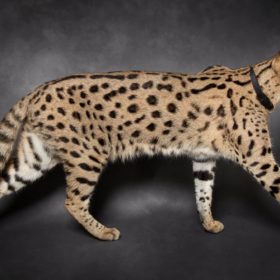 Savannah
Savannah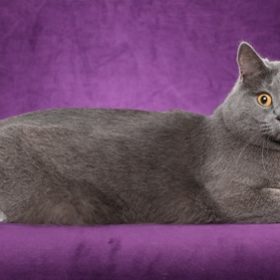 Chartreux
Chartreux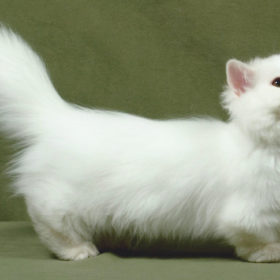 Minuet (Napoleon)
Minuet (Napoleon)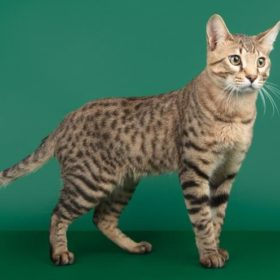 Serengeti
Serengeti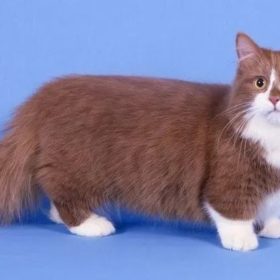 Munchkin Longhair
Munchkin Longhair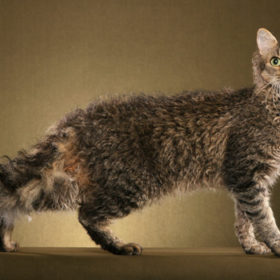 LaPerm Shorthair
LaPerm Shorthair